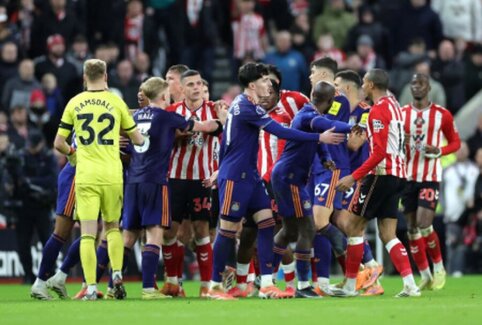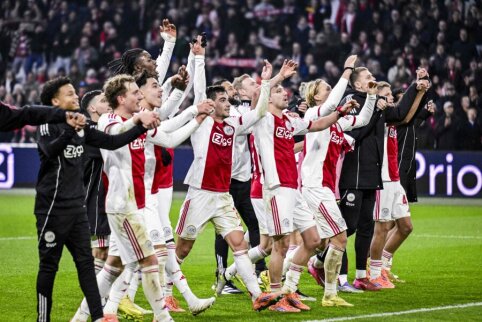
The Footballers' Association "Fifpro" believes that the player transfer system in existence since 2001 violates the principles of competition of the European Union (EU).
The organization will present its complaint to the European Commission in Brussels today in accordance with FIFA rules.
"These changes could turn football upside down," said one BBC source.
"Fifpro" has been negotiating with FIFA and UEFA for the past few years about the possibilities of changing the system, but these discussions broke down in January.
The players' union wants four essential changes in the system:
1. Any player whose club does not pay wages for 30 days should have the right to terminate the contract, provided that he gives written notice to his employers at least 10 days before.
2. If the contract is terminated without just cause or at the player's initiative due to unpaid wages, the player's contract must be compensated by the club itself and paid until the end.
3. A player who terminates the contract due to the aforementioned processes should be able to find a job immediately, without waiting for the opening of the transfer window.
4. These rules should apply both domestically and during transfers between clubs in different countries.
How does the transfer system work now?
According to "Fifpro," the proposed changes would help improve the "interaction between clubs and players."
Under the current system, a player can only terminate a contract due to unpaid wages after 90 days, and must also submit his case to FIFA's dispute resolution committee. Players usually win these cases, but they take a very long time simply because there are so many cases (about 4,000 per year), so the commission simply cannot resolve them quickly. This affects the players' careers.
On the other hand, if a player breaches his contract, according to the rules, he is banned from playing for 120 days and must compensate the club for his "market value" from his own pocket.
"Fifpro" views this, as well as transfer fees, as a fee for employment, a phenomenon that no other EU worker would tolerate.
The European Club Association (ECA), representing about 200 of the most powerful European clubs, and the European Professional Football Leagues' Association (EPFL) refused to accept "Fifpro's" conditions, which, they claimed, would further increase the "power of players."
Last week, ECA president Karl-Heinz Rummenigge said that such changes would be bad for the transfer system and recalled the Bosman rule, stating that "court decisions are not always positive for the game itself."
How has the system changed?
"Fifpro" was founded in 1965 to replace the then very strict player transfer system.
It was only in the early 1960s that the Supreme Court of England abolished the previous transfer system. The result was that clubs could prevent players from leaving even when their contracts ended and their employers stopped paying them.
Until the little-known victory of Belgium's Jean-Marc Bosman against the "Dunkerque" club in 1995, the EU essentially left football to fate and did not interfere with contracts.
However, Bosman's victory meant that players had the right to move to another club for free after the end of their contract. This also meant the end of quotas for players from EU countries.
This had a particularly significant impact on the Premier League, as the globalization of the major leagues began at that time.
High football officials and clubs feared that the Bosman rule would send the game into anarchy and for the next six years tried to restrain the wave of football liberalization. In part, they succeeded in 2001 when an informal agreement was reached between FIFA, UEFA, and the EU.
These parties claimed that clubs needed EU rule exemptions to ensure contract stability, redistribute money from the wealthy to the less wealthy, ensure compensation for young talents, but even in this case the transfer system was more advantageous to clubs.
After five years, another precedent occurred when Edinburgh Hearts defender Andy Webster, after a famous dispute with Vladimir Romanov, became the first player to take advantage of the new FIFA rules.
These rules stated that a player under 28 years of age, who has been playing with the current contract for at least 3 years, can terminate it, provided that the player gives written notice to the club at least 15 days before the end of the season.
However, the rule also requires that the club be compensated for the player's "market value", meaning that the Webster rule has not yet been widely used.
Notwithstanding, discussions about the possibility that one player or another can use the Webster rule seem to arise almost every year. This summer, such a possibility was considered in the case of Raheem Sterling.
Does the system need to be changed?
"Fifpro" argues that the 2001 changes did not fulfill their functions – they did not increase contractual stability, did not create equality between clubs, and did not redistribute money flows, which still largely circulate in the pockets of European giants.
"The whole current system is at risk," said one BBC source.
"These changes could turn football upside down and force clubs to find a more proportionate income distribution model. 'Fifpro' is very serious about this."
Matt Slater, BBC























